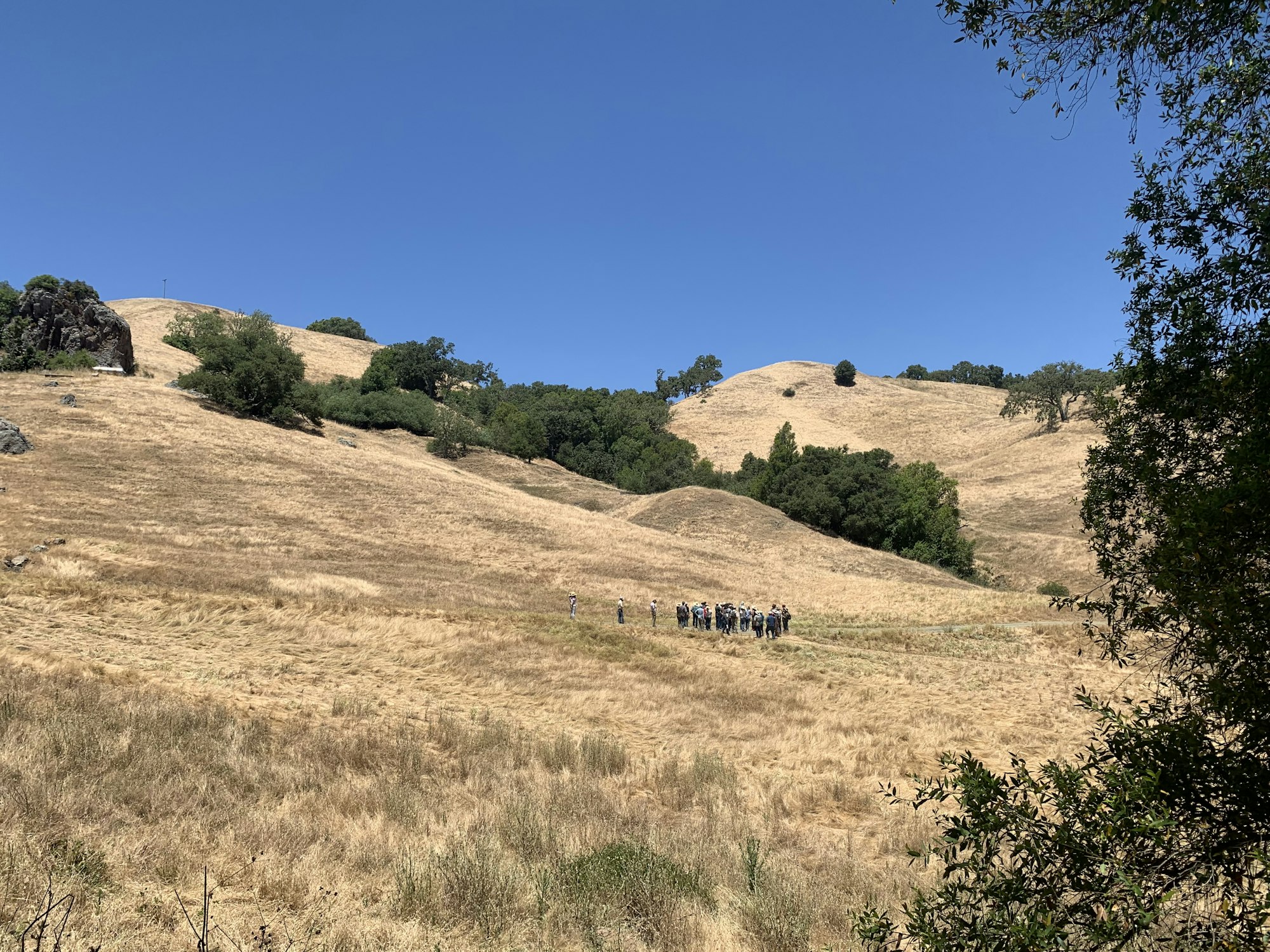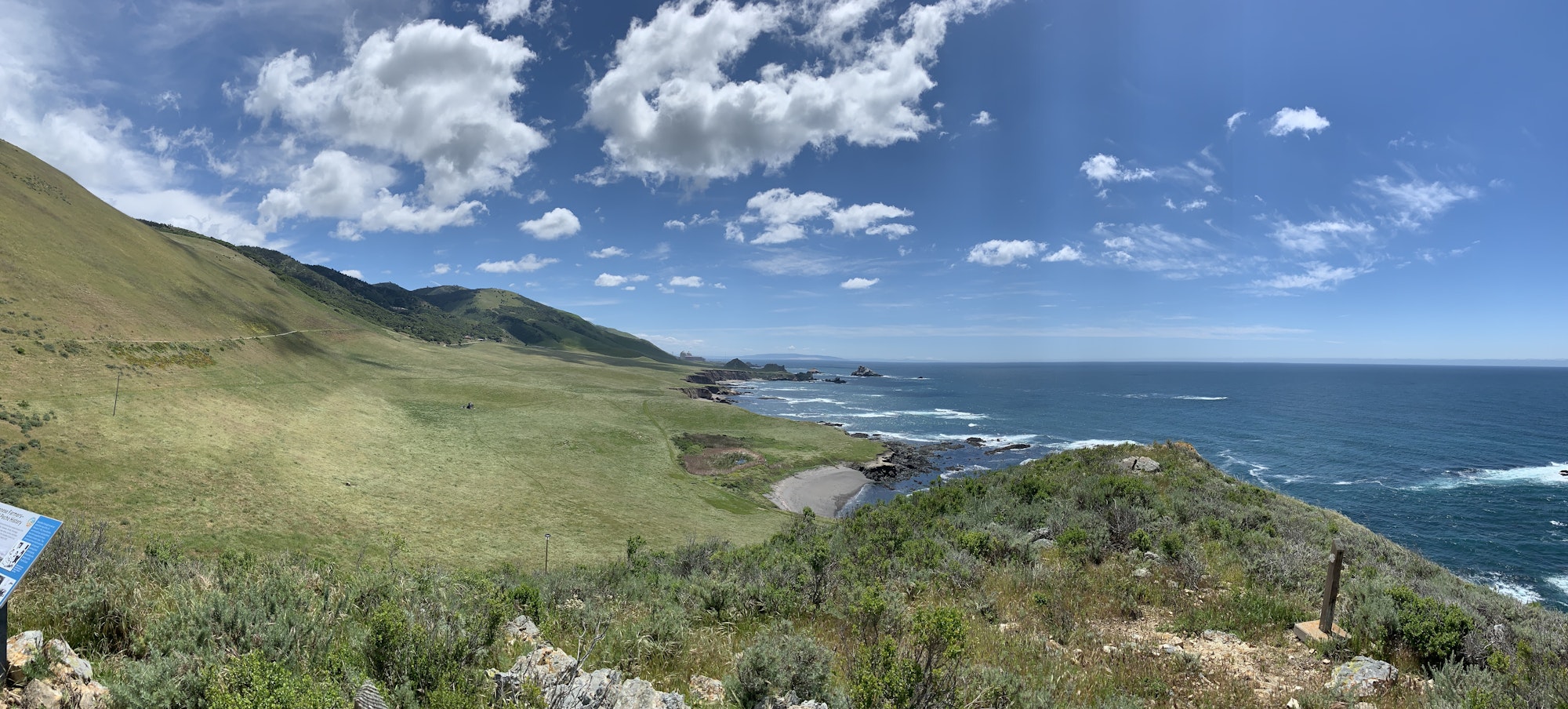Central Coast Soil Hub
About the Hub
The Central Coast Soil Hub is a voluntary collaboration between four Central Coast resource conservation districts (RCDs). By collaborating with one another we can share knowledge and resources to fulfill our shared mission to support this region. We partner with farmers and ranchers, researchers, community organizations, and local, state and federal agencies to provide technical and financial support to the Central Coast agriculture community.
.jpg?ixlib=rb-1.1.0&w=2000&h=2000&fit=max&or=0&s=359a54919ef5e90a63370d083aa80e33)
● We work to expand technical and financial assistance programs and services to support agricultural conservation.
● We foster innovation and encourage development of agricultural climate solutions appropriate for the Central Coast.
● We strengthen local and regional collaboration among our producers, agencies, organizations, researchers and policymakers.
The collaborative activities of the Hub are made possible by the generous support of the Carbon Cycle Institute and the California Association of Resource Conservation Districts.
RCD Contact: Joshua Kouri, josh@coastalrcd.org
What Is Carbon Farming
One reason the Hub was created was to promote Carbon Farming on the Central Coast. Carbon farming is agriculture that emphasizes the importance of carbon to the health of soils, plants and people. Carbon farming practices help plants remove carbon dioxide from the atmosphere and convert it into useful farm products (food, fuel, fiber, plant material and soil organic matter). These practices reduce agricultural greenhouse gas emissions and they provide a multitude of co-benefits (such as increasing productivity, water retention, biodiversity and drought resilience on farms and ranches). The Hub provides the key support that enables farmers and ranchers to adopt carbon farming practices and enhance stewardship of working lands throughout the Central Coast.
The following video, recorded at the 2025 California Small Farms Conference, discusses carbon farming.
MISSION — What We Do
The mission of the Central Coast Soil Hub is to coordinate the effective collaboration between the Resource Conservation Districts (RCDs) in the Hub (as well as their partners) to support resilient and sustainable agricultural operations in the Central Coast for generations to come. The Hub will achieve this through the following.
● Facilitating capacity-building of the Hub RCDs through acquiring funding for staff, planning, training, implementation, outreach and collaboration.

● Bringing together people, organizations and projects that span the entire service area of the Hub and coordinating effective collaboration of these pieces, making an intentional effort to be inclusive of the entire Central Coast community.
● Creating structure for carbon farming, regenerative agriculture and other climate-smart land management activities through producing standardized templates, program standards and best practices, and appropriate frameworks.
● Promoting the adoption of climate-smart and regenerative agriculture practices within the service area of the Hub and setting an example for other regions of the state to follow.
VISION — Why We Do It
The Resource Conservation Districts of the Central Coast Soil Hub are committed to stewarding the land and serving the agricultural community of this unique and valuable region. We believe that healthy and productive soils, clean water and functioning ecosystems are the foundation for a thriving community. We see the potential for the Central Coast to help lead the way for expanding the adoption of climate-smart land management both in California and across the nation. The 1.9 million acres of row crops, orchards, vineyards and rangeland in our districts serve as a primary economic driver of our communities and are at risk due to drought and climate change.

Climate-smart and regenerative agriculture have been identified as a way to help achieve emission reduction goals as well as improve on-farm productivity and viability, enhance ecosystem and landscape function, and mitigate climate change. The variety of land uses and geography within the region demonstrates the diverse range across which climate-smart practices and their benefits can be studied, compared and showcased. By working collaboratively as a Hub, we believe we can more effectively use our resources, knowledge and ability to meet the needs of this region and promote the importance of natural and working lands in building resilient communities.

VALUES — How We Operate
● We value the viability of natural and working lands and the RCDs who support them — we will support and promote economically viable, scientifically sound, and environmentally sustainable farming and ranching. We will act to ensure the long-term viability of the Hub to continue this work.
● We value our staff — we will seek opportunities to offer training and professional development, to secure stable funding for staff positions, to provide livable and competitive wages, and to offer a pathway to meaningful and fulfilling work.
● We value our communities — we will intentionally seek to build trust in our communities by acting in a manner consistent with our Mission, Vision and Values. We will ensure equitable access to our services, resources and information, and will seek opportunities to include feedback from stakeholders that reflects the diversity of our communities.
● We value collaboration — we will cooperate with one another and with our partners for the benefit of our communities. We will support each other so that all land stewards in our region can take advantage of the resources offered by the Hub. We will share information and resources as we are able.
● We value relevance, impact, adaptability and innovation — we will focus our efforts on initiatives that are relevant to the natural and working lands of the Central Coast and which will provide the most positive impact to our communities. We will be adaptable and innovative in our strategies for doing so.


.JPG?ixlib=rb-1.1.0&or=0&w=720&h=720&fit=max&auto=format%2Ccompress&s=abab2d689e2775090e3f747dcfcbc913)

